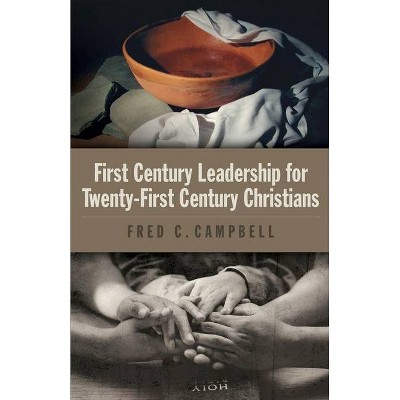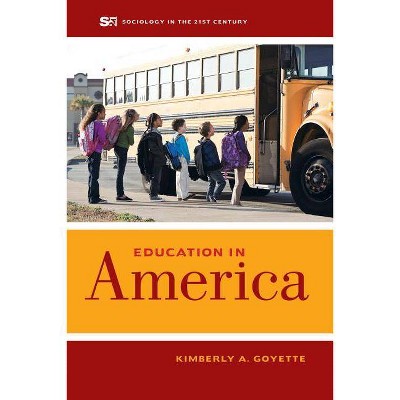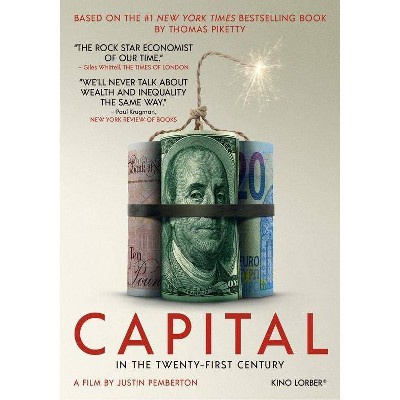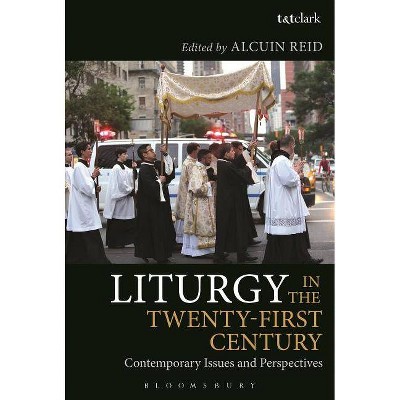Education Governance for the Twenty-First Century - by Paul Manna & Patrick McGuinn (Paperback)
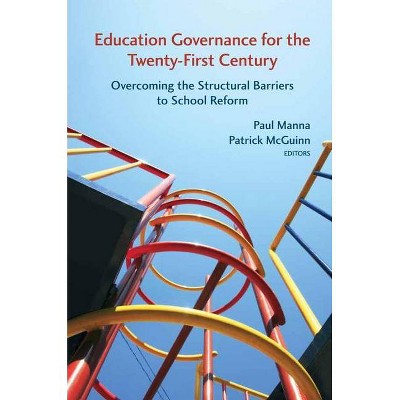
Similar Products
Products of same category from the store
AllProduct info
<p/><br></br><p><b> About the Book </b></p></br></br>A Brookings Institution Press with the Thomas B. Fordham Institute and the Center for American Progress publication <p/>America's fragmented, decentralized, politicized, and bureaucratic system of education governance is a major impediment to school reform. In this important new book, a number of leading education scholars, analysts, and practitioners show that understanding the impact of specific policy changes in areas such as standards, testing, teachers, or school choice requires careful analysis of the broader governing arrangements that influence their content, implementation, and impact. <p/> <i>Education Governance for the Twenty-First Century</i> comprehensively assesses the strengths and weaknesses of what remains of the old in education governance, scrutinizes how traditional governance forms are changing, and suggests how governing arrangements might be further altered to produce better educational outcomes for children. <p/>Paul Manna, Patrick McGuinn, and their colleagues provide the analysis and alternatives<br>that will inform attempts to adapt nineteenth and twentieth century governance structures to the new demands and opportunities of today. <p/>Contents: <p/>Education Governance in America: Who Leads When Everyone Is in Charge?, <br>Patrick McGuinn and Paul Manna <p/>The Failures of U.S. Education Governance Today, <br>Chester E. Finn Jr. and Michael J. Petrilli <p/>How Current Education Governance Distorts Financial Decisionmaking, <br>Marguerite Roza <p/>Governance Challenges to Innovators within the System, <br>Michelle R. Davis <p/>Governance Challenges to Innovators outside the System, <br>Steven F. Wilson <p/>Rethinking District Governance, <br>Frederick M. Hess and Olivia M. Meeks <p/>Interstate Governance of Standards and Testing, <br>Kathryn A. McDermott <p/>Education Governance in Performance-Based Federalism, <br>Kenneth K. Wong <p/>The Rise of Education Executives in the White House, State House, and Mayor's Office, <br>Jeffrey R. Henig <p/>English Perspectives on Education Governance and Delivery, <br>Michael Barber <p/>Education Governance in Canada and the United States, <br>Sandra Vergari <p/>Education Governance in Comparative Perspective, <br>Michael Mintrom and Richard Walley <p/>Governance Lessons from the Health Care and Environment Sectors, <br>Barry G. Rabe <p/>Toward a Coherent and Fair Funding System, <br>Cynthia G. Brown <p/>Picturing a Different Governance Structure for Public Education, <br>Paul T. Hill <p/>From Theory to Results in Governance Reform, <br>Kenneth J. Meier <p/>The Tall Task of Education Governance Reform, <br>Paul Manna and Patrick McGuinn<p/><br></br><p><b> Book Synopsis </b></p></br></br><p>America's fragmented, decentralized, politicized, and bureaucratic system of education governance is a major impediment to school reform. In this important new book, a number of leading education scholars, analysts, and practitioners show that understanding the impact of specific policy changes in areas such as standards, testing, teachers, or school choice requires careful analysis of the broader governing arrangements that influence their content, implementation, and impact.</p> <p> <i>Education Governance for the Twenty-First Century</i> comprehensively assesses the strengths and weaknesses of what remains of the old in education governance, scrutinizes how traditional governance forms are changing, and suggests how governing arrangements might be further altered to produce better educational outcomes for children.</p> <p>Paul Manna, Patrick McGuinn, and their colleagues provide the analysis and alternatives that will inform attempts to adapt nineteenth and twentieth century governance structures to the new demands and opportunities of today.</p> <p>Contents: </p> <p>Education Governance in America: Who Leads When Everyone Is in Charge?, Patrick McGuinn and Paul Manna</p> <p>The Failures of U.S. Education Governance Today, Chester E. Finn Jr. and Michael J. Petrilli</p> <p>How Current Education Governance Distorts Financial Decisionmaking, Marguerite Roza</p> <p>Governance Challenges to Innovators within the System, Michelle R. Davis</p> <p>Governance Challenges to Innovators outside the System, Steven F. Wilson</p> <p>Rethinking District Governance, Frederick M. Hess and Olivia M. Meeks</p> <p>Interstate Governance of Standards and Testing, Kathryn A. McDermott</p> <p>Education Governance in Performance-Based Federalism, Kenneth K. Wong</p> <p>The Rise of Education Executives in the White House, State House, and Mayor's Office, Jeffrey R. Henig</p> <p>English Perspectives on Education Governance and Delivery, Michael Barber</p> <p>Education Governance in Canada and the United States, Sandra Vergari</p> <p>Education Governance in Comparative Perspective, Michael Mintrom and Richard Walley</p> <p>Governance Lessons from the Health Care and Environment Sectors, Barry G. Rabe</p> <p>Toward a Coherent and Fair Funding System, Cynthia G. Brown</p> <p>Picturing a Different Governance Structure for Public Education, Paul T. Hill</p> <p>From Theory to Results in Governance Reform, Kenneth J. Meier</p> <p>The Tall Task of Education Governance Reform, Paul Manna and Patrick McGuinn</p><p/><br></br><p><b> Review Quotes </b></p></br></br><br><P>"A searing indictment of our fragmented and incoherent education governance system inherited from the 19th century. It illuminates the negative consequences of no one in charge. The book includes a stimulating array of promising alternatives for the contemporary school governance context."--Michael W. Kirst, Professor Emeritus of Education and Business Administration, Stanford University, and President of the California State Board of Education<br><br><P>"McGuinn, Manna, and their fellow authors ask this fundamental question: Can the oftendisappointing performance of our education system be explained in part by the way it's organized? Are 14,000 separate districts ruled by elected school boards the best arrangement for 21st-century America? Their superb analysis shows how this long-standing form of education governance can present significant barriers to needed reform--and how to think about possible alternatives."--Christopher D. Cerf, New Jersey Commissioner of Education<br><br><P>"This book deals with the elephant in the room in education reform--the governance challenges that are myriad, persistent, and obtrusive at multiple levels--and puts forward a broad range of arguments, evidence, and case examples culled from the brightest minds studying these issues today.... The ideas and recommendations advanced in this volume are strategic, well-informed, and insightful, making it a must-read for anyone seeking to be a driver of bold and formative change in education policy."--Carolyn J. Heinrich, Sid Richardson Professor of Public Affairs, Lyndon B. Johnson School of Public Affairs, University of Texas at Austin<br><br><P>"This book provides a provocative look at how we govern our education system. The authors take a critical look at how we currently govern and identify concrete alternatives to ensure more of our youth are successful in school."--John E. Deasy, Superintendent, Los Angeles Unified School District<br><p/><br></br><p><b> About the Author </b></p></br></br><p> <b>Paul Manna</b> is associate professor in the Department of Government and the Thomas Jefferson Program in Public Policy at the College of William & Mary. <b>Patrick McGuinn</b> is associate professor of political science and education at Drew University.</p>
Price History
Cheapest price in the interval: 34.99 on November 8, 2021
Most expensive price in the interval: 34.99 on December 20, 2021
Price Archive shows prices from various stores, lets you see history and find the cheapest. There is no actual sale on the website. For all support, inquiry and suggestion messagescommunication@pricearchive.us
